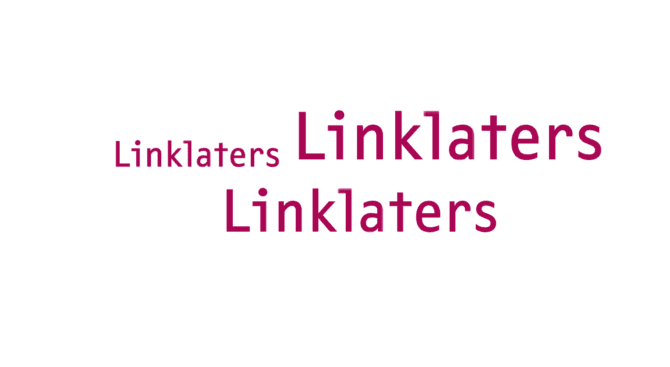Google Bard vs Microsoft and ChatGPT: the race to LLM-ify the search engine
21 February 2023
Since the launch of OpenAI’s ChatGPT beta in November 2022, the chatbot race has subsequently heated up in Q1 of 2023 with Google recently announcing the launch of its own generative chatbot Bard.
Tech giants Microsoft and Google have quietly been gearing up to lead an NLP-powered revolution that is enroute to forever changing the way we work. The giants have sprung to action.
For the past month or so, there have been rumours that Microsoft plans to integrate ChatGPT into its Bing search engine. Last week, on the 7th of February, this was confirmed in an official Microsoft announcement that it will superpower Bing and the Edge browser with upgraded ChatGPT AI (GPT-4). Years ago, Microsoft funded OpenAI with a $1bn investment, and now it has pledged to extend its partnership with a multi-year, multi-billion dollar investment.
All of a sudden, Google has jumped on the bandwagon. Last week, on the 6th February, Google announced a new, shiny AI product: Bard, which it will soon roll out with its search engine.
And now, "the race starts today," says Microsoft boss Satya Nadella. Microsoft’s move is the biggest threat Google has seen to its dominance in internet search, and it will be a spectacle to watch this contest pan out. Could Microsoft’s smart decision to back OpenAI flip the hierarchy and win Bing users back?
Below, we share our assessment of the rivalry between ChatGPT and Google Bard. This includes an analysis of the underlying models: GPT3 versus LaMDA.
We explain that although Google is coming across as hasty, the ChatGPT-infused Bing is unlikely to be a Google killer. Google’s position remains robust, and so they can afford for Bard to be a mild flop.
This article is the fourth in Springbok’s ChatGPT series. We have delved into its impact on customer experience and the legal industry, and how a human-in-the-loop can mitigate its risks.
A word on the search engine market
The search market is saturated. By this, we mean that people are unlikely to use search engines more frequently – the key is which search engine they use. So, the game is mainly about the market share of searches, which is directly converted into advertising revenue, since adverts are mainly priced based on impressions.
Google Search is of vital importance to Alphabet, Google’s parent company. Adverts on Search constitute over half of Alphabet’s revenue, so if Google loses 10% of market share in the search space, it could knock down Alphabet’s revenue by over 5%.
How large language models (LLMs) could enhance search engines
LLM-based chatbots are able to respond to a wide range of topics (open-domain) and are able to generate responses on the fly, rather than just selecting from a pre-written list of responses (generative). They include Google Meena, Replika.ai, BlenderBot, ChatGPT, and others.
At present, we have to be smart and methodical about how we Google things for maximal effectiveness. I might insert quotation marks to minimise the guesswork for the search engine, add hyphens to exclude certain words, and avoid being wordy. Then I’ll try again with slight rephrasing until Google finally reverts some useful sources. This is far from perfect.
Now, let’s imagine the perfect search engine. Say I want some ideas for a surrealist painting of a tea party I am working on, so I say “Hey, search engine!” out loud, and record a question with plenty of filler words like “um”, “ah”, and “y’know”. The Perfect Search Engine™ writes me a summary of appropriate and applied surrealist themes from trustworthy and up-to-date sources across the web, with hyperlinks and a summary of each. In a conversational interface, I supplement my request by adding that it is a “sweet but sinister” tea party, and it reverts seconds later, without me having to repeat the question from scratch.
This is what a good LLM-supplemented search engine would probably look like. The user experience (UX) of search engines becoming increasingly grounded in natural language processing (NLP) is certainly of benefit.
If the Bing and Google search engines become more conversational, good user experience (UX) will become synonymous with software having a conversational quality to it. This will extend beyond the current state of bespoke CX chatbots and personal assistants like Alexa.
Judging from apparent leaked screenshots of the new ChatGPT-powered Bing however, it is taking the form of a chatbot separate from the main search function.
How will the LaMDA models differ from GPT3?
LaMDA and GPT3 are fundamentally built on the same technology. Indeed, both Google and Microsoft have their names on the original research papers that discussed the underlying transformer technology.
Google plans to initially release Bard with its lightweight model version of LaMDA. It being a much smaller model means less computing power, enabling Google to open it up to more users and allow more feedback. OpenAI, by contrast, misjudged how much computing power would be necessary for the beta – the ChatGPT web page often says it is processing too many requests and to try again later.
LaMDA is speculated to be trained on more conversational data, so it may be more suited towards the chat aspect. This is because Google has access to all of the text data from the websites findable through their search engine. It is unclear where they harvested conversations from. We briefly hypothesised a hushed-up deal with, for example, Facebook for their colossal messenger content, but we have more or less ruled that out – we doubt Facebook would hand that over.
This situation could be set to flip once OpenAI leverages all this new data they are harvesting through the beta. After all, ChatGPT going viral has seen the fastest user acquisition and growth for any product or platform in the history of the internet!
How the historical cutoff will vary between the two is currently unclear as ChatGPT is only trained on pre-2021 data. It is unlikely that Bard will be trained real-time, and even a monthly update of training data would be impressive.
Google remains the crowned monarch of search engines… for now
The verb to google something emerged as a neologism twenty years ago and was added to the Oxford English Dictionary in 2006. That should speak for itself. Bing, on the other hand, only brings back school day memories from when we pupils were scolded if we used any browser other than the slow and unsightly Internet Explorer on our Windows PCs.
Google’s global search engine market share is 92%. Bing’s global search engine market share is a runner-up, but is still a measly 3%. It takes time and effort to shift people’s behaviour, even if Bing provides real value that Google can’t.
Microsoft’s advantages in its integration of OpenAI’s ChatGPT with Bing
Upon its release, ChatGPT was anticipated to be a ‘Google killer’ as it became a household name overnight. Like all LLMs unleashed on the public, it has its share of risks. Fortunately for Microsoft, ChatGPT’s training method of Reinforcement Learning from Human Feedback (RLHF) is going rather well, with the chatbot having over 100 million users, and 25 million daily visitors.
One of the biggest advantages for OpenAI/Microsoft is that they are collecting an incredible amount of useful conversation data through this open beta of ChatGPT, which Google lacks. So whatever model (GPT4?) comes next that includes this data may have a leg up.

The potential risk to Google’s reputation as the tech giant
Google seems to be moving at an astonishing hare’s pace. Either Bard has already long been in the works, but OpenAI won the race, or Bard is reactionary and Google whipped it up over Christmas.
Of course, Google is no novice when it comes to AI – its LLMs include BERT, MUM, PaLM, and recently LaMDA (which Bard is based on).
Nonetheless, Google has manifestly taken on board the threat to its dominance. It has issued a “code red” amid the launch of ChatGPT – that is, Google has redirected its team from other departments to its AI strategy. Google’s CEO has also called upon all employees to test Bard “in the spirit of an internal hackathon.”
In our view, this indicates that Bard has not been planned for long. On the contrary, it is the result of a sudden and anxious thrust of manpower. Google faced pressure to come up with an answer to the Microsoft-backed OpenAI that has taken the public by storm, so it is doing just that.
Google has been swift in its response, but it is nonetheless late to the party. Bard now risks being a rushed rip-off of ChatGPT, or worse, a faulty dud that will be detrimental to Google’s reputation as the tech giant.
Furthermore, even if Bard is objectively better, Microsoft nonetheless beat them to the punch, and may prosper simply because of that fact. Indeed, Google employees asked executives at an all-hands meeting whether the AI chatbot that’s going viral represents a “missed opportunity” for the company.
Why Google’s position remains strong
The right strategic move from Google now is to work around the clock to release Bard, even if it risks not holding a candle ChatGPT’s fame. The priority goal over the coming months is to mitigate the risk of a public shift to Bing. Luckily for Google, it has capital and customer loyalty, so it has little to worry about.
If both Microsoft and Google’s LLM-infused search engines are underwhelming, Google has an adequately strong position for the flop not to matter. The Google graveyard has a long list of tombstones for insufficiently profitable products killed off by Google, and Bard would be just another experiment.
If, on the other hand, both are decently strong, then Google will have nipped Microsoft’s potential competitive advantage in the bud. If Google can offer a roughly similar product offering, then it is unlikely that people will jump ship to Bing – Microsoft’s search engine would require a sharp edge to overcome the inertia of people sticking to what they are familiar with.
The real risk for Google: ethical red lines and safety
The real threat does not regard Google’s market share, but the ethical burden that accompanies AI. This is especially pertinent to AI which has been hastily tested and released, and which lacks a human-in-the-loop to fall back on.
Google should not prioritise profit and speed over public safety. In our article on risks, we delve into jailbreaking, cyberweaponisation, and radicalisation. AI ethics are set to become more crucial in today’s epoch, but problematically, legislation fails to enforce many principles.
The EU Commission’s guidelines contain zero unalterable ethical principles, and nearly half of the team who wrote it were representatives of Nokia, Google, IBM, and the like, and a small fraction were experts on ethics.
This article is part of a series exploring ChatGPT and what this means for the chatbot industry. Others in the series include a discussion on the legal and customer experience (CX) sectors, and how a human-in-the-loop can mitigate risks.
Springbok have also written the ChatGPT Best Practices Policy Handbook in response to popular client demand. Reach out or comment if you'd like a copy.
Other posts
Linklaters launches AI Sandbox following second global ideas campaign
Linklaters has launched an AI Sandbox which it says will allow the firm to quickly build out AI solutions and capitalise on the engagement and ideas from its people.
Linklaters staff pitch 50 ideas in supercharged AI strategy
Linklaters has announced the launch of an AI sandbox, a creative environment that will allow AI ideas to be brought, built and tested internally.
Linklaters joins forces with Springbok for its AI Sandbox
Global law firm Linklaters has launched an ‘AI Sandbox’, which will allow the firm to ‘quickly build out genAI solutions, many of which have stemmed from ideas suggested by its people’, they have announced.




